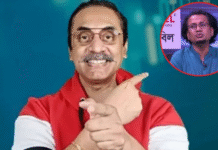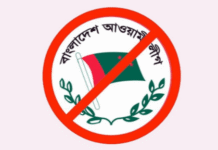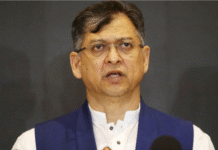M. Shahidul Islam
A Constitution is not worth the papers it is written onto if it fails to guide a nation during protracted political crisis. History also shows, in the process of any consequential political maneouvring, one can get away with a crafty game plan only if it is played out within the bounds of the law.
Bounds of laws have been stomped many times in the past, spurring the dangers of the present. The validity of the 2008 election remains unchallenged as yet due to its benefactors choosing to divert the focus toward ditching away the Caretaker Government (CG), embarking in war crime trials, and, a host of other issues seemingly un-related to improving the well-being of the people.
That neither overwrote the dictum that, one can not fool all the people all the time, nor did the prospect of it coming to hound again has withered away. All bad legacies are prone to rebound with a vengeance unless settled amicably between the perpetrators and the aggrieved.
The tenure of the incumbent parliament expiring in days, we again hear of make-shift arrangements, no-brainer fixtures, and, surreal palliatives being devised to hold yet another election by not being deferential to, and in compliance with, the laws crafted by the very people who are as yet in the seats of the government.
Unconstitutional gestures
History also shows platitudes and brinkmanship gestures do not cut the ice during legal complications. The 15th Amendment to the Constitution has made it incumbent to hold an election within 90 days after the expiration of the tenure of the Parliament (Article 123), which is on October 27.
And, the deletion of the Caretaker Government (CG)provision from the statute book left no room for such an election to be held under any other palliative regime, save the incumbent one.
The PM’s call for cobbling together what she termed as the ‘All Party Government’ (let’s call it APG) is hence unconstitutional. The Constitution must be amended to make that happen.
That is, however, part of the problem. The opposition parties are not willing to, as per as we know, partake in the election keeping the incumbent PM as the chief executive of the nation, as well as the minister in charge of the armed forces, while the election occurs.
An APG, hence, must be composed of a new PM (call it by any name) and a new cabinet. The incumbent PM can, if she chooses, stay dysfunctional or under suspended animation until a new PM takes oath of office. Our advice is to empower the institution of the Presidency while the PM stays silent and dysfunctional during the poll-time interregnum.
Such an arrangement, too, needing an amendment to the Constitution, what was so grossly wrong in conducting polls under the CG at least for two more times; as was opined in the very court verdict used as the pretext to annul the CG provision?
This we say just to remind us all that we the human beings are not as smart as we think. What was done in a hurry (amending the Constitution) must now be undone in a hurry; at least to ward off the impending dangers. Those dangers are lurking around for both the government and the opposition parties.
As there’s no alternative to amending the Constitution, something we harped on time and again in these pages, the changes must be lasting, comprehensive and inclusive this time so as not to undergo the same traumatizing spells time and again.
Proposed amendments
We propose the following amendments (shown in italics) to the Constitution in order to empower the existing institutions for holding free and fair future elections. These institutions include, inter alia, the Presidency, the Election Commission (EC), and, the concerned parts of the civil and military administrations that the EC feels as indispensible to conduct elections in a manner deemed as fair and credible by all stake holders.
(1). Article 48 (2) shall be amended as: Notwithstanding anything contained in this Constitution and in any other law, the President shall, as Head of State, take precedence over all other persons in the State, and shall exercise the powers and perform the duties conferred and imposed on him by this Constitution and by any other law, including conducting national elections within the stipulated time upon the expiration of the term of each parliament; during which time the President shall act as the Chief Executive of the nation and be aided by a cabinet composed of maximum 11 advisers nominated by all major political parties with proven 5 percent or more electoral support.
(2). Article 48(3) shall be amended as: Except from the day of the expiration of the tenure of a parliament to the day a newly elected Parliament takes oath of office, the President shall, in the exercise of all his functions, save only that of appointing the Prime Minister pursuant to clause (3) of article 56 and the Chief Justice pursuant to clause (1) of article 95, act in accordance with the advice of the Prime Minister, and, during the period of election time interregnum, hold all the executive powers held by the PM.
(3). Article 126 (in Part V11 of the Constitution) shall be amended as: It shall be the duty of all executive authorities, civil and military, to assist the Election Commission in the discharge of its functions.
(4). Article 77 (1) shall be amended as: The Parliament shall, by law, provide for the establishment of the office of Ombudsman, including an Ombudsman to settle election-related disputes and complaints, which shall be composed of 7-9 members named and chosen by registered political parties with proven 5 per cent electoral support.
Restoring balance
These amendments, if done in consultation with all relevant stake holders, will remove the lingering predicaments from holding free and fair elections in the future; will restore some semblance of balance of power between the titular President and a ‘monopolistic PM’ of the existing mould; and, will make the government more accountable to people at large, not the party it belongs to.
Most importantly, the proposed amendments will somewhat blunt the absolute domination of power by a unicameral parliament that can do and undo things without being answerable to a superior institution (like the Senate or the House of Lords) that is in vogue in traditional democracies.
Source: Weekly Holiday









